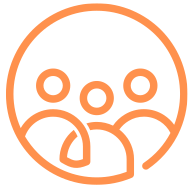Welcome to your ultimate guide to coding tutorials and resources. Whether you're a beginner dipping your toes into the world of programming or an experienced developer looking to expand your skill set, this comprehensive guide will provide you with the tools and knowledge you need. Let's dive into the world of coding, explore various resources, and understand how they can elevate your programming journey.
The Importance of Coding Tutorials and Resources
Coding tutorials and resources play a crucial role in the learning journey of every programmer. They provide a structured way to learn new languages, frameworks, and techniques. With the right resources, you can master the art of coding more efficiently and effectively.
Consider coding tutorials as your personal mentor. They guide you through the process, explaining complex concepts in an understandable manner. You can learn at your own pace, revisit topics, and practice until you feel confident.
Resources, on the other hand, are like your toolbox. They contain everything you need to code, from compilers and debuggers to libraries and APIs. With the right resources, you can build anything from a simple calculator app to a complex web application.
Identifying Quality Coding Tutorials
Not all coding tutorials are created equal. Some offer in-depth explanations and practical examples, while others barely scratch the surface. So, how do you identify quality coding tutorials?
Look for tutorials that explain concepts clearly and concisely. They should provide real-world examples and exercises for you to practice. Also, consider the tutorial's structure. It should start with the basics and gradually move towards more complex topics.
Reviews and ratings can also be a good indicator of a tutorial's quality. If a tutorial has positive feedback from other learners, it's likely to be a good resource. However, remember that everyone's learning style is different. What works for others might not work for you.
Exploring Coding Resources
Coding resources come in various forms, each serving a different purpose. Let's explore some of the most common types.
Integrated Development Environments (IDEs) are software applications that provide comprehensive facilities for software development. They usually include a source code editor, build automation tools, and a debugger. Some popular IDEs include Visual Studio Code, PyCharm, and Eclipse.
Libraries and frameworks are reusable code written by other developers that you can use in your projects. They can save you a lot of time and effort. For example, jQuery is a JavaScript library that simplifies HTML document traversal and manipulation.
APIs (Application Programming Interfaces) allow your application to interact with other applications or services. They can be used to fetch data, send data, and perform other operations.
Online Platforms for Coding Tutorials and Resources
The internet is a treasure trove of coding tutorials and resources. Numerous online platforms offer high-quality tutorials and resources for learners of all levels.
Codecademy, for instance, offers interactive coding tutorials in various programming languages. It also provides projects and quizzes to test your understanding.
GitHub is another invaluable resource. It's a platform where developers share their code, collaborate on projects, and contribute to open-source software. You can find libraries, frameworks, and other resources on GitHub.
Stack Overflow, a question and answer site for professional and enthusiast programmers, is a great place to find solutions to coding problems. It's a community of developers helping each other out.
Books and Offline Resources for Coding
While online resources are plentiful and convenient, don't overlook the value of books and other offline resources. They offer a different learning experience and can be a great addition to your learning journey.
Books often provide a more in-depth exploration of topics. They can offer a comprehensive understanding of a programming language or a concept. Some popular coding books include "Clean Code" by Robert C. Martin and "You Don't Know JS" by Kyle Simpson.
Meetups and coding bootcamps are other offline resources worth considering. They provide an opportunity to learn from experts, work on projects, and network with other developers.
Making the Most of Coding Tutorials and Resources
Simply having access to coding tutorials and resources isn't enough. You need to know how to make the most of them.
Start by setting clear learning goals. What do you want to achieve? Do you want to learn a new language, understand a framework, or build a specific project? Your goals will guide your learning journey.
Practice is key in coding. Don't just passively consume the tutorials. Code along, work on projects, and solve problems. The more you code, the better you'll get.
Don't be afraid to ask for help. If you're stuck on a problem or don't understand a concept, reach out to the community. There are numerous online forums and communities where you can ask questions and get help.
Wrapping Up Your Coding Journey
Embarking on your coding journey with the right tutorials and resources can make all the difference. They not only provide the knowledge and tools you need but also guide you, motivate you, and make your learning journey enjoyable. Remember, the key to mastering coding lies in understanding the concepts, practicing regularly, and never stopping learning. Happy coding!

